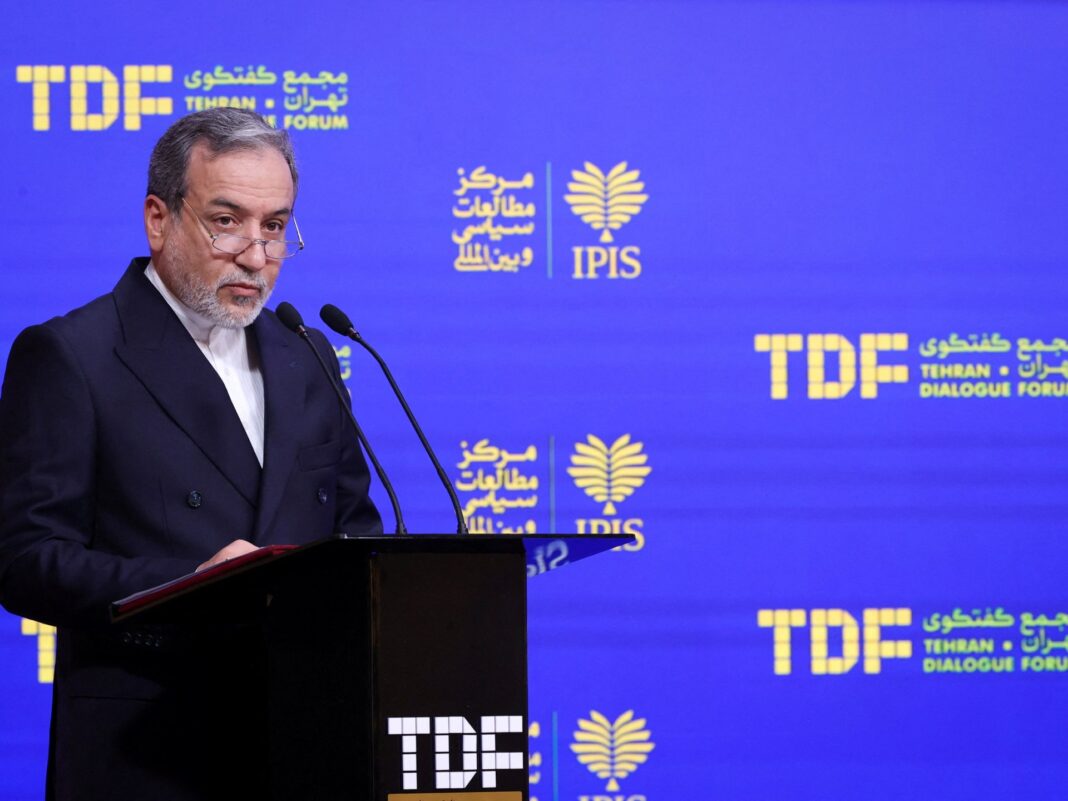‘Suspicious and unwarranted’ arrests of Iranians come amid lingering tensions over Iran’s nuclear programme and the fallout of Russia-Ukraine war.
Tehran, Iran – Iran’s Ministry of Foreign Affairs has summoned the United Kingdom’s charge d’affaires over what it called “suspicious and unwarranted” arrests of several Iranian nationals.
The UK earlier this month accused several Iranian nationals of offences without offering evidence, wilfully refrained from informing Iran’s embassy in time, and prevented consular access contrary to international norms, the ministry said in a statement issued late on Sunday, according to state media.
It also accused the British government of harbouring “political motivations to exert pressure on Iran” with the arrests.
The diplomatic spat comes two days after British police charged three Iranians with suspected espionage for Iran’s intelligence services under the country’s National Security Act of 2023.
Mostafa Sepahvand, 39, Farhad Javadi Manesh, 44, and Shapoor Qalehali Khani Noori, 55, were accused of conduct likely to assist a foreign intelligence service between August 14, 2024 and February 16, 2025.
They appeared before a Westminster Magistrates’ Court on Saturday, where they were also charged with engaging in surveillance and reconnaissance with the intention of committing or supporting serious violence against a person in the UK.
Their cases were referred to a central criminal court, and the next hearing is scheduled for early June.
The three are among eight individuals arrested in May, including seven Iranians, as part of two separate operations which Home Secretary Yvette Cooper said were some of the biggest investigations of their kind in recent years.
The four other Iranians were arrested as part of a “counterterrorism” operation, with investigations ongoing. The eighth man was released without charge last week.
In a stated effort towards improving national security against covert foreign influences, the UK has placed Iran on its highest tier under the Foreign Influence Registration Scheme (FIRS).
Strained ties
The arrests come amid strained ties between Iran and three European powers over Tehran’s nuclear programme.
The UK, France and Germany have repeatedly criticised Iran for a purported lack of cooperation with the International Atomic Energy Agency (IAEA) to ensure that Iran’s nuclear programme remains peaceful.
The trio, branded the E3 in the context of the negotiations, were party to Iran’s 2015 nuclear deal, which the United States unilaterally abandoned in 2018.
However, the US has reopened talks with Tehran in a bid to secure a new deal, and amid four rounds of talks mediated by Oman, Iran has emphasised it is open to holding more talks with the E3 as well.
Senior diplomats from the two sides gathered on Friday in Turkiye’s Istanbul for their first meeting since the nuclear talks with Washington commenced last month. Both sides stressed a commitment to continued diplomacy, but there was no breakthrough.
Rather, Iran has repeatedly warned that there will be “serious ramifications” if the E3 push to invoke the “snapback” mechanism of the comatose 2015 nuclear deal, which would reinstate the United Nations Security Council sanctions that were lifted as part of the landmark accord.
Tehran and Washington have also failed to see eye to eye so far when it comes to enrichment of uranium, with Iran reiterating on Monday that it will not back down from its right to have a civilian nuclear programme.
After US Special Envoy to the Middle East Steve Witkoff said President Donald Trump’s administration would not allow Iran to enrich uranium even to 1 percent, Iranian Foreign Minister Abbas Araghchi said “unrealistic” demands would only lead to a dead end.
The E3 is also concerned about numerous reports that Iran has been arming Russia for its war in Ukraine, accusations that Tehran denies.
Speaking to reporters on Monday, Foreign Ministry spokesman Esmail Baghaei said Tehran has yet to receive a written proposal from the US to advance to a fifth round of negotiations, which is expected soon.
He also said Iran has not proposed a joint enrichment venture with Saudi Arabia and the United Arab Emirates, but backs such an effort.
“The West Asia region, and specifically countries of the Persian Gulf, may increasingly require nuclear energy and to build power plants requiring nuclear fuel, so it won’t be bad if nuclear fuel facilities or consortiums are created in our region so everyone can invest in them.”


